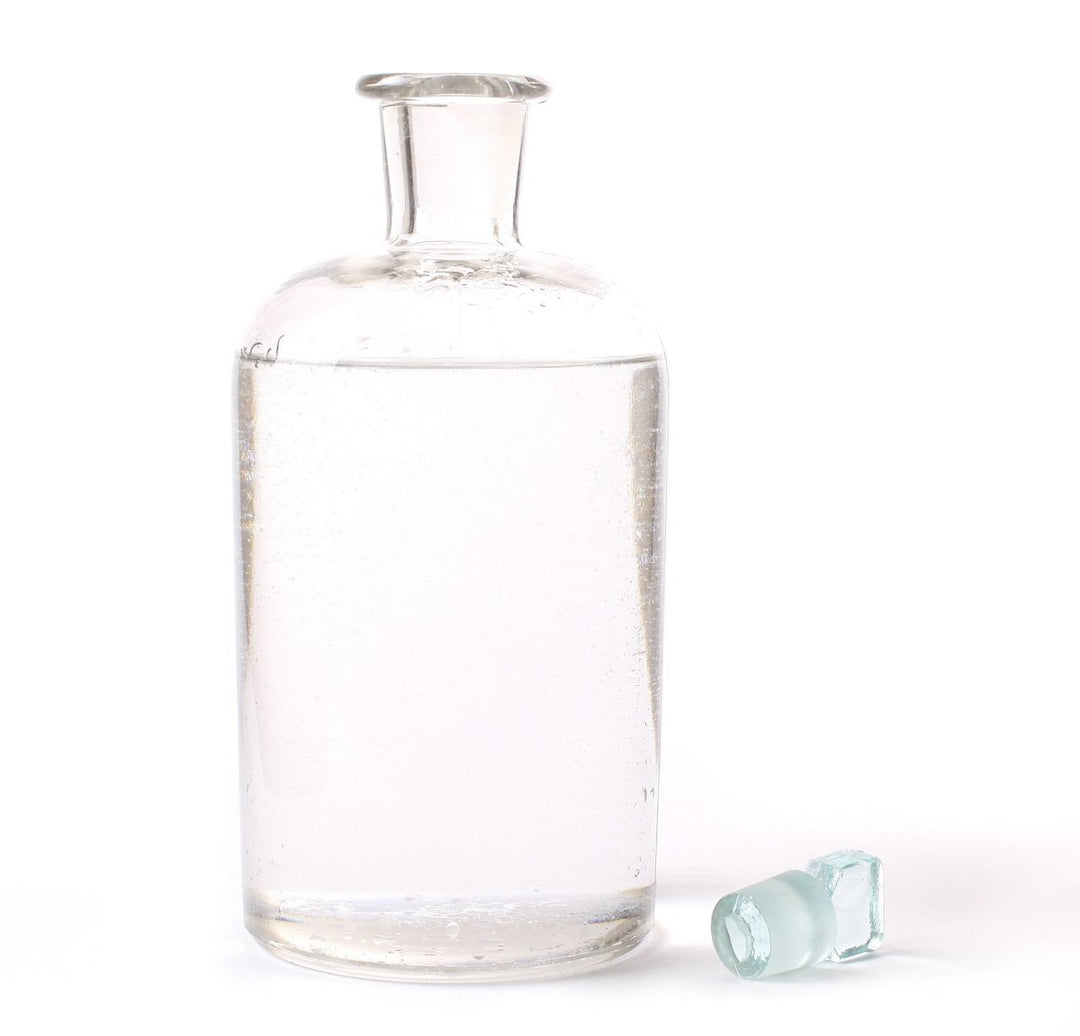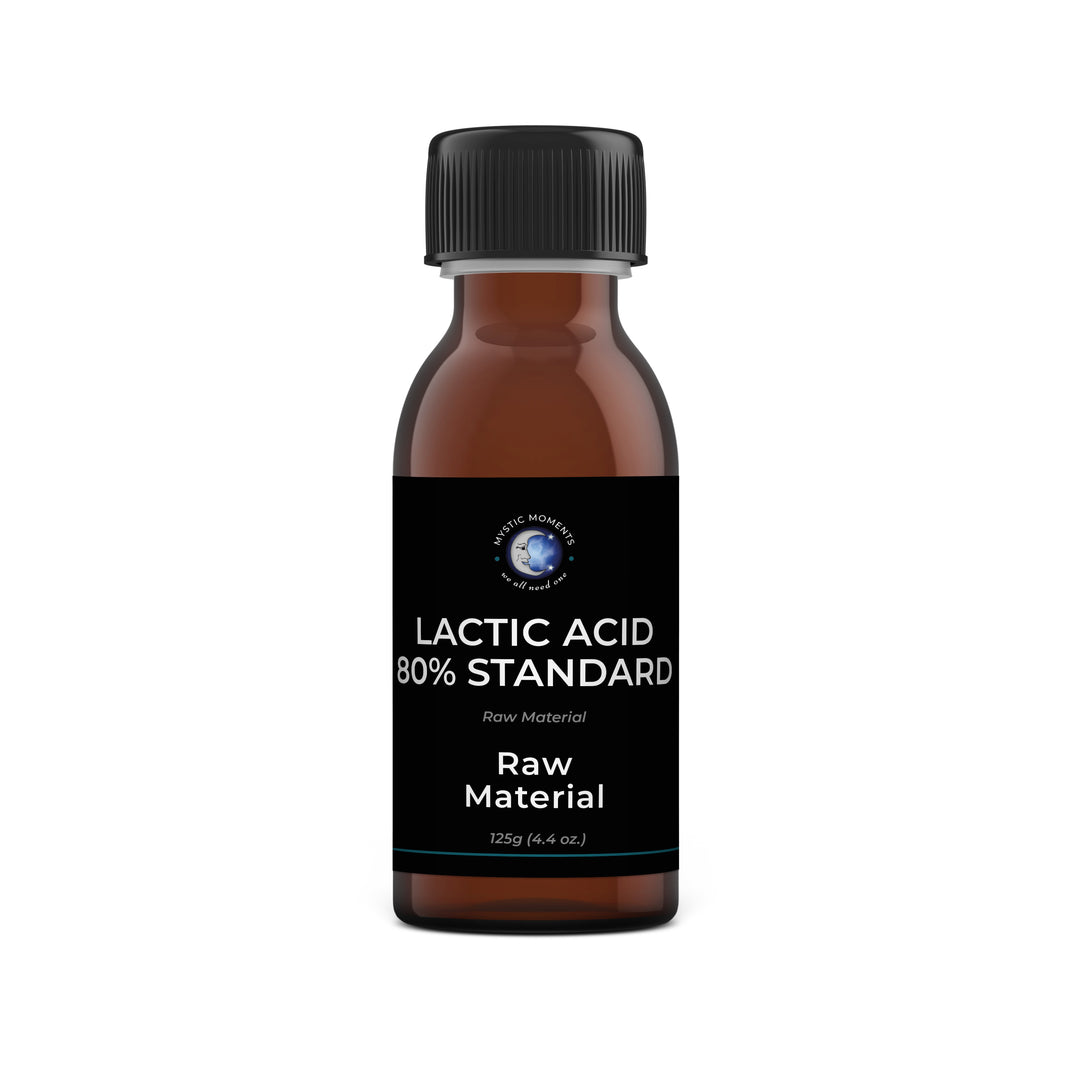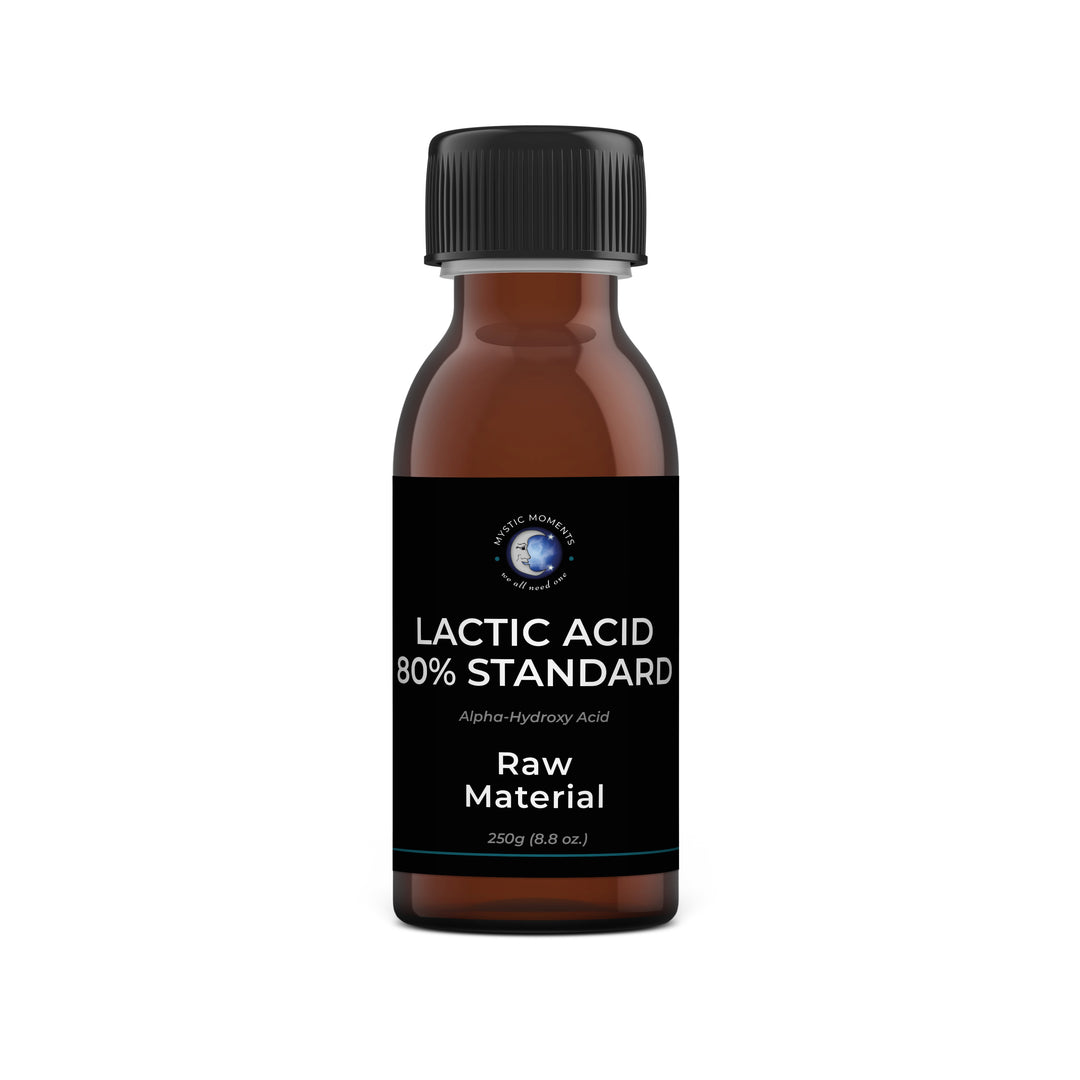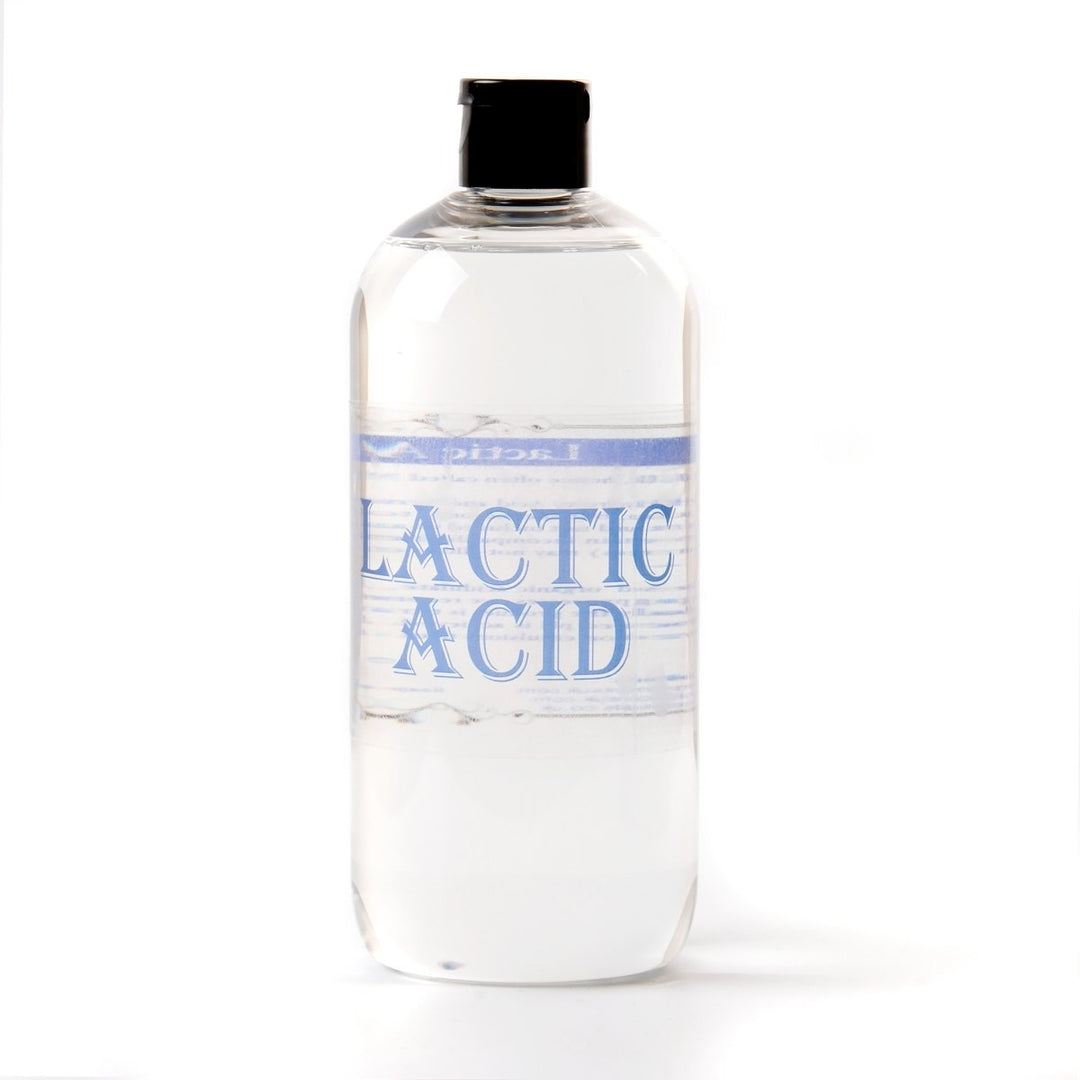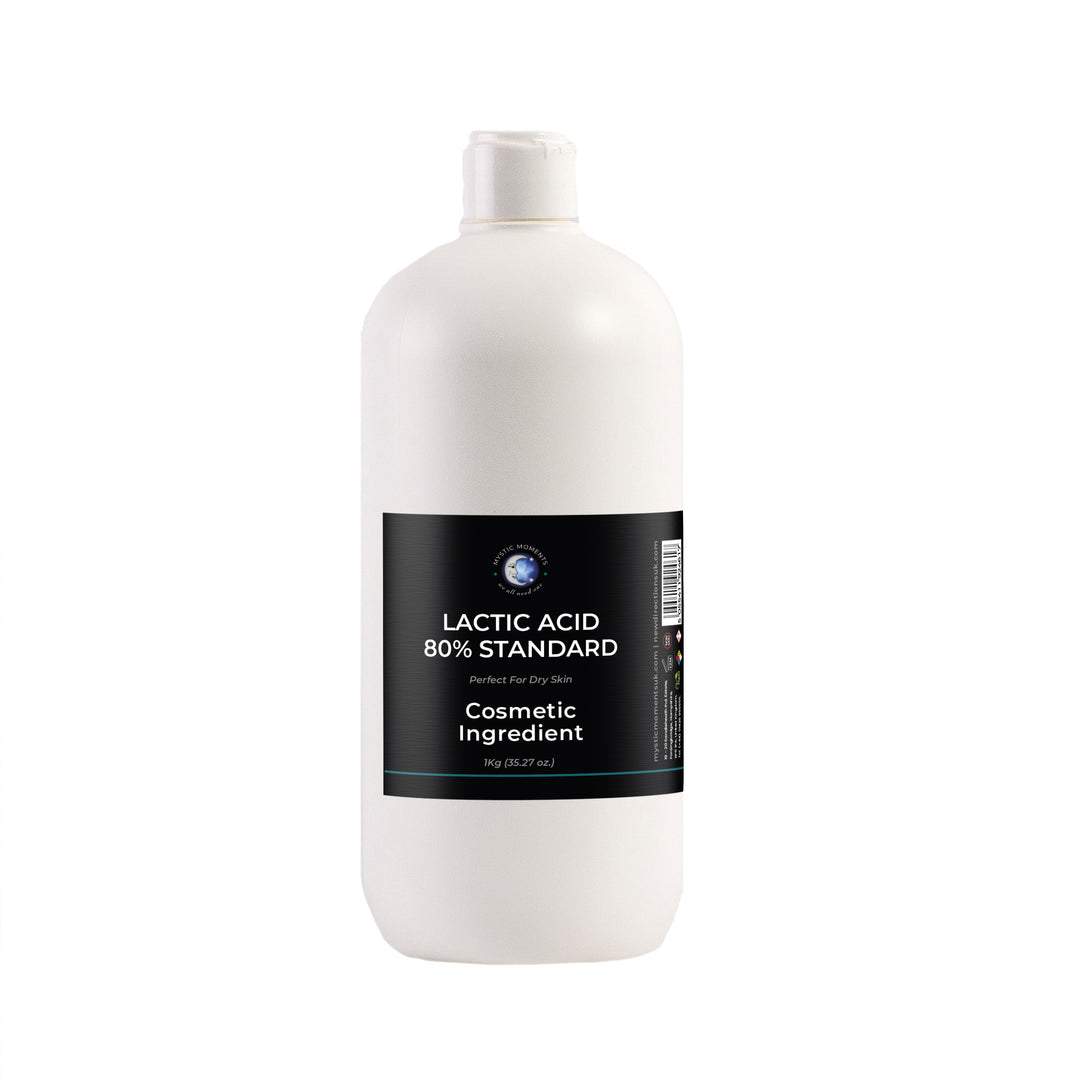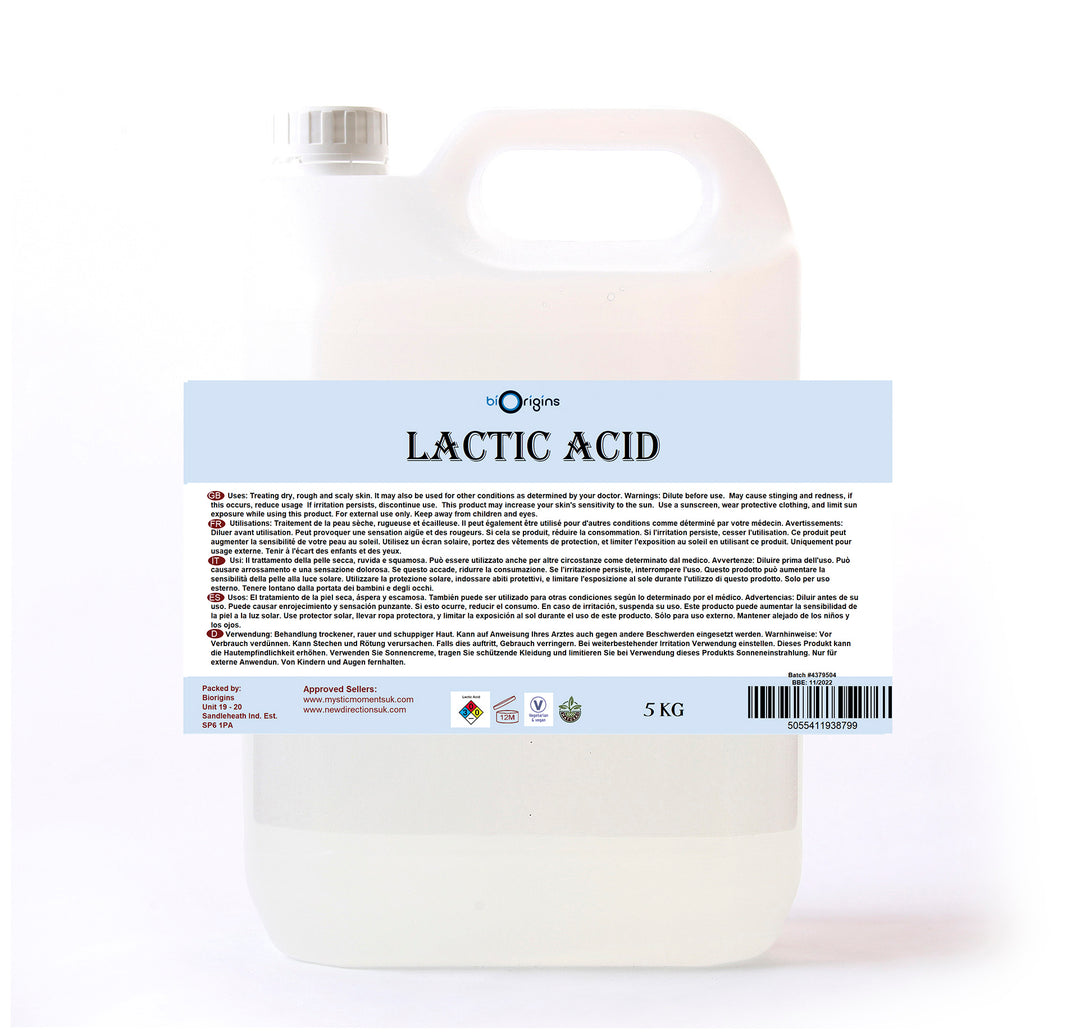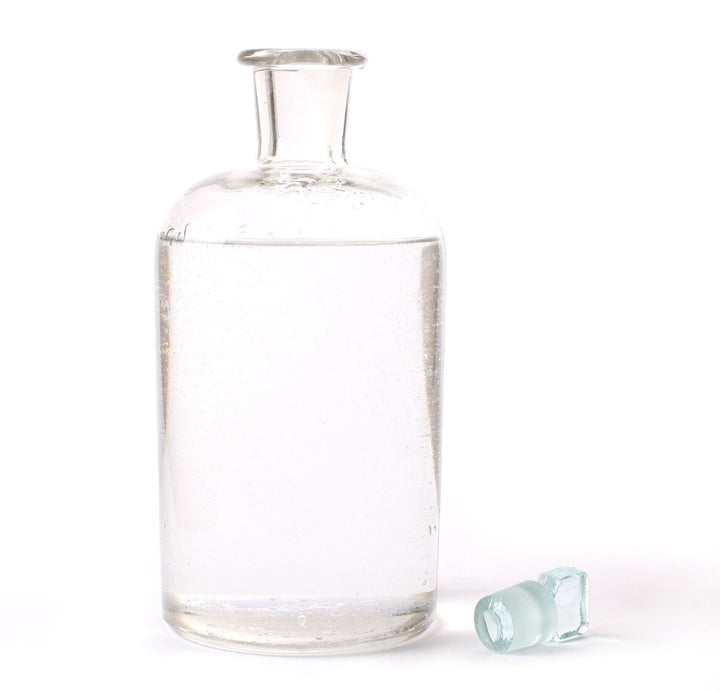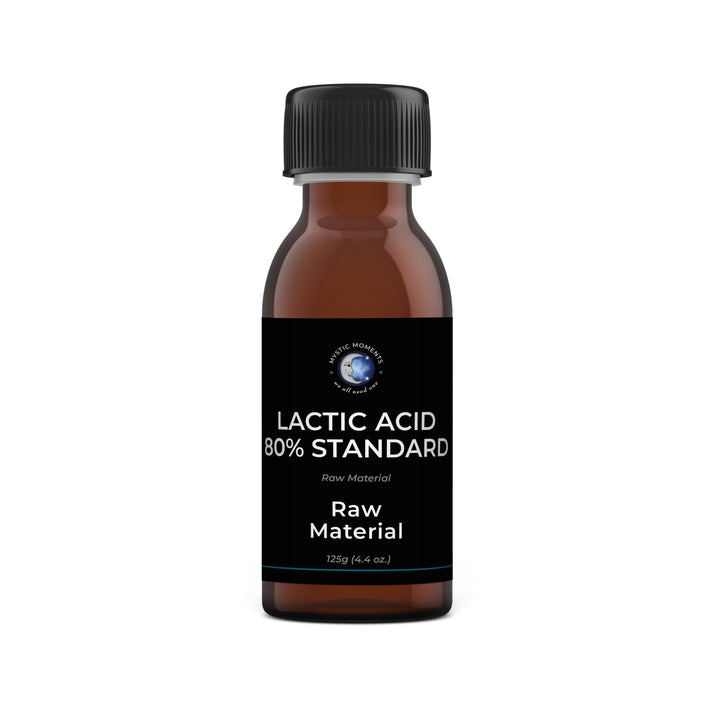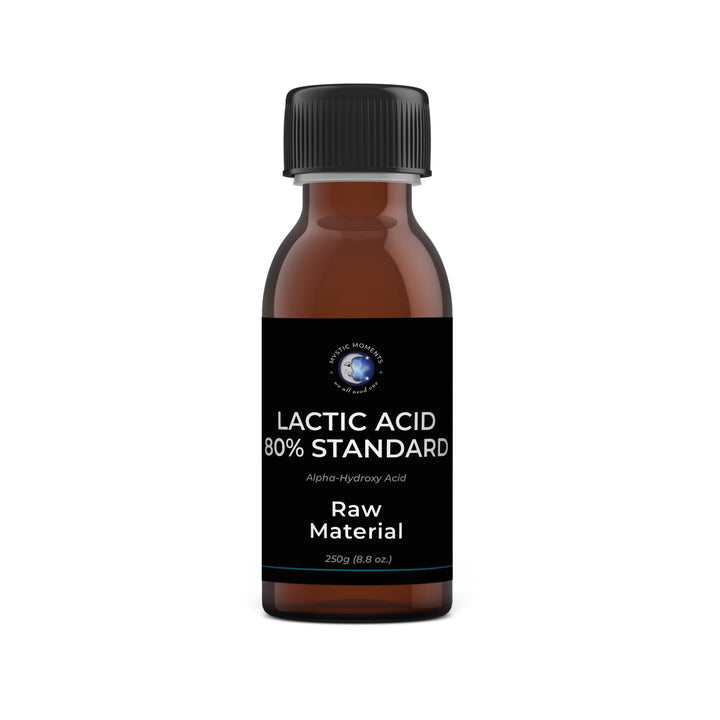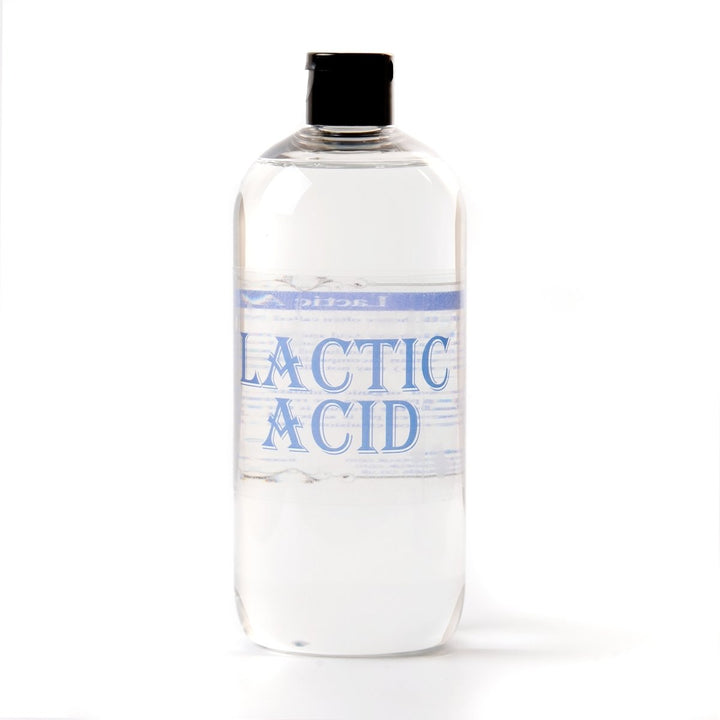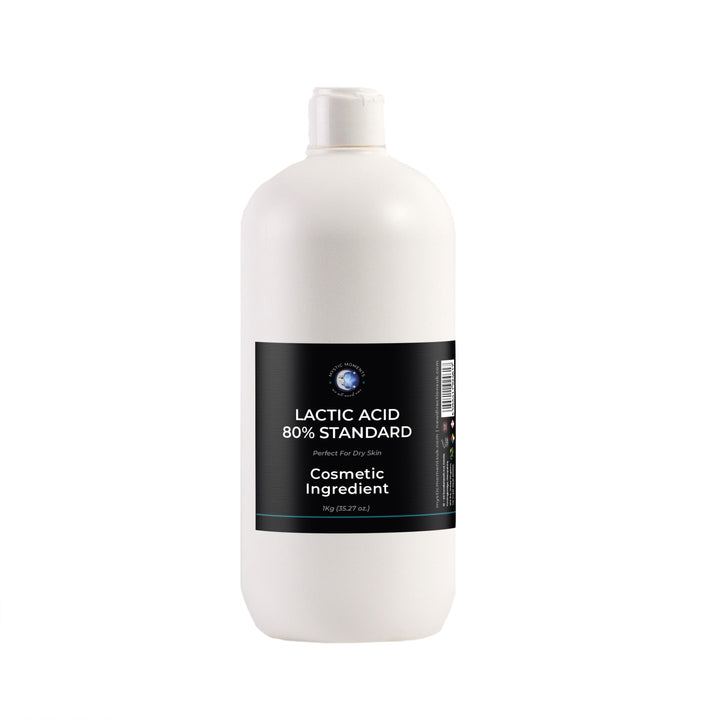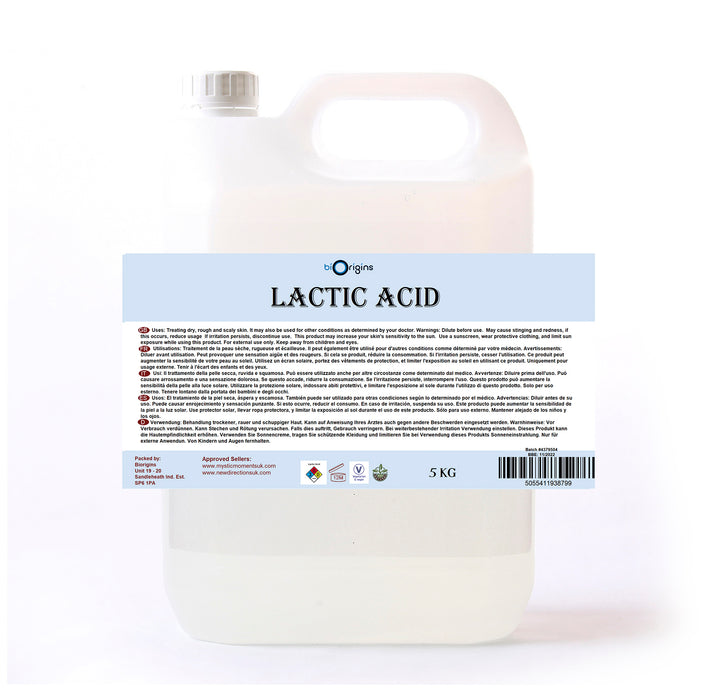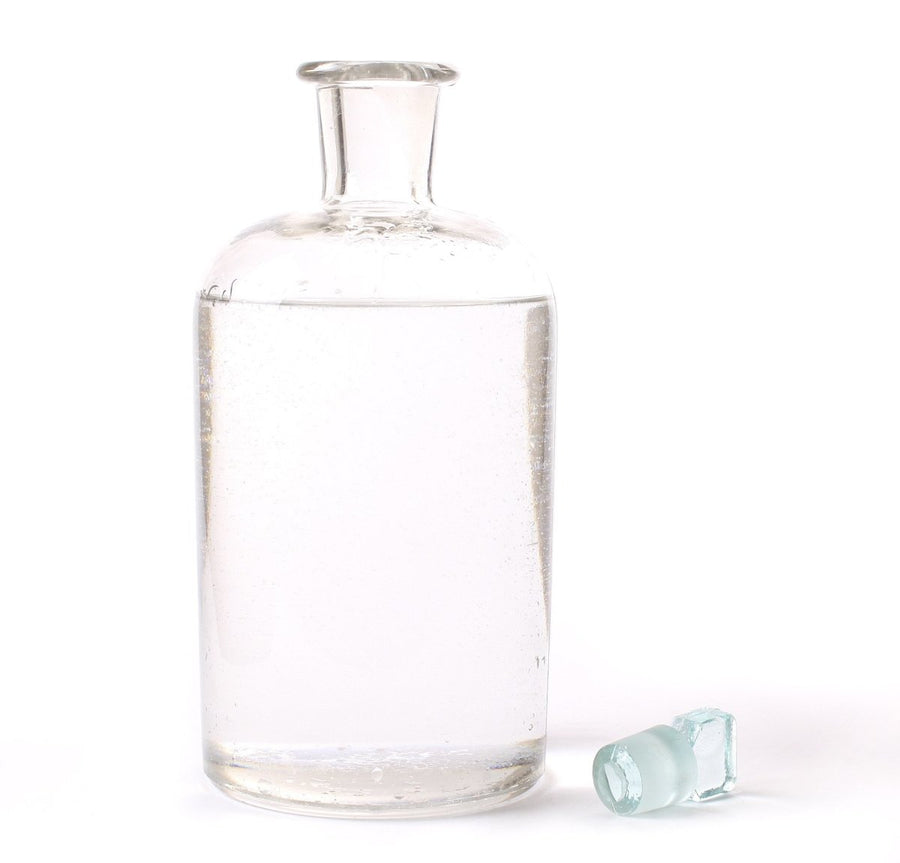Lactic Acid 80% Standard
- Free UK Shipping - Orders Over £25
- Worldwide shipping
- Carbon neutral
- Secure payments
- In stock, ready to ship
- Backordered, shipping soon
Lactic Acid 80% Standard.
It is a liquid solution in water of about 80% purity.
5 - 20% Lactic Acid would be a good place to start, as this is milder while still having excellent skin peel affects.
Uses: Treating dry, rough & scaly skin. It may also be used for other conditions as determined by your doctor.
Warnings: Dilute before use. As with all of the acids, it is important to let your skin acclimate to their use. For those whose skin is not used to the acids a slight stinging and redness may result. If this occurs, reduce usage. If irritation persists, discontinue use. This product contains an alpha hydroxy acid (AHA) that may increase your skin's sensitivity to the sun and particularly the possibility of sunburn. Use a sunscreen, wear protective clothing, and limit sun exposure while using this product and for a week afterwards.
Lactic Acid is a strong Alpha-Hydroxy Acid and hence will have excellent exfoliant properties, although these are weaker than, but second only to, Glycolic Acid. AHA products should be a stand alone treatment product and not included in another product. While AHA can be included in other products there are certain incompatibilities that may arise plus AHAs (because of the pH required for best effectiveness) may not allow other products (such as cleansing masks) to work properly, and vice versa.
AHA products should have a pH of 3.5 to 4.5 for best effectiveness (Note at pH 7 AHAs are totally ineffective); while masks have a pH dependant on the function (cleansing masks with a pH of 7 to 8; moisturizing masks with a pH of 5 to 6 and some treatment masks with a pH of 4.5 to 5.5). Hence these may have incompatible pH.
If a product has some film forming agent or, in the case of masks, have materials which are not absorbed, these may reduce the absorption of AHAs. Hence reduce their effectiveness.
If a mask uses clays then the AHAs will react with these and both reduce the activity of the AHAs and destroy some of the clay.
If you want to use a concentrated AHA then you will find most references suggest Glycolic Acid. However, while this is cheap and obtained in 70% liquid form, because of its apparent activity it has its dangers in that it will quickly burn skin with disastrous consequences. The TGA and the SUSDP (Poisons Committee) have legislated that Glycolic acid at should be used at a maximum of 30% (and preferably no more than 20%) and a pH of greater than 3.5. Otherwise they would be considered therapeutic goods and have various poisons warnings on the label.
Lactic acid is also a widely used organic acidulate, probably because it is classified as a weak acid. As with all manufacturing processes, we recommend lab scale trials in order to determine appropriate quantities. Normally the product is titrated with a dilute solution of Lactic Acid (10 or 20% in water) until the desired pH is achieved. It is preferred as an acidulate as it tends to have less of a destabilizing effect on emulsions than Citric Acid.
Specification Documents


